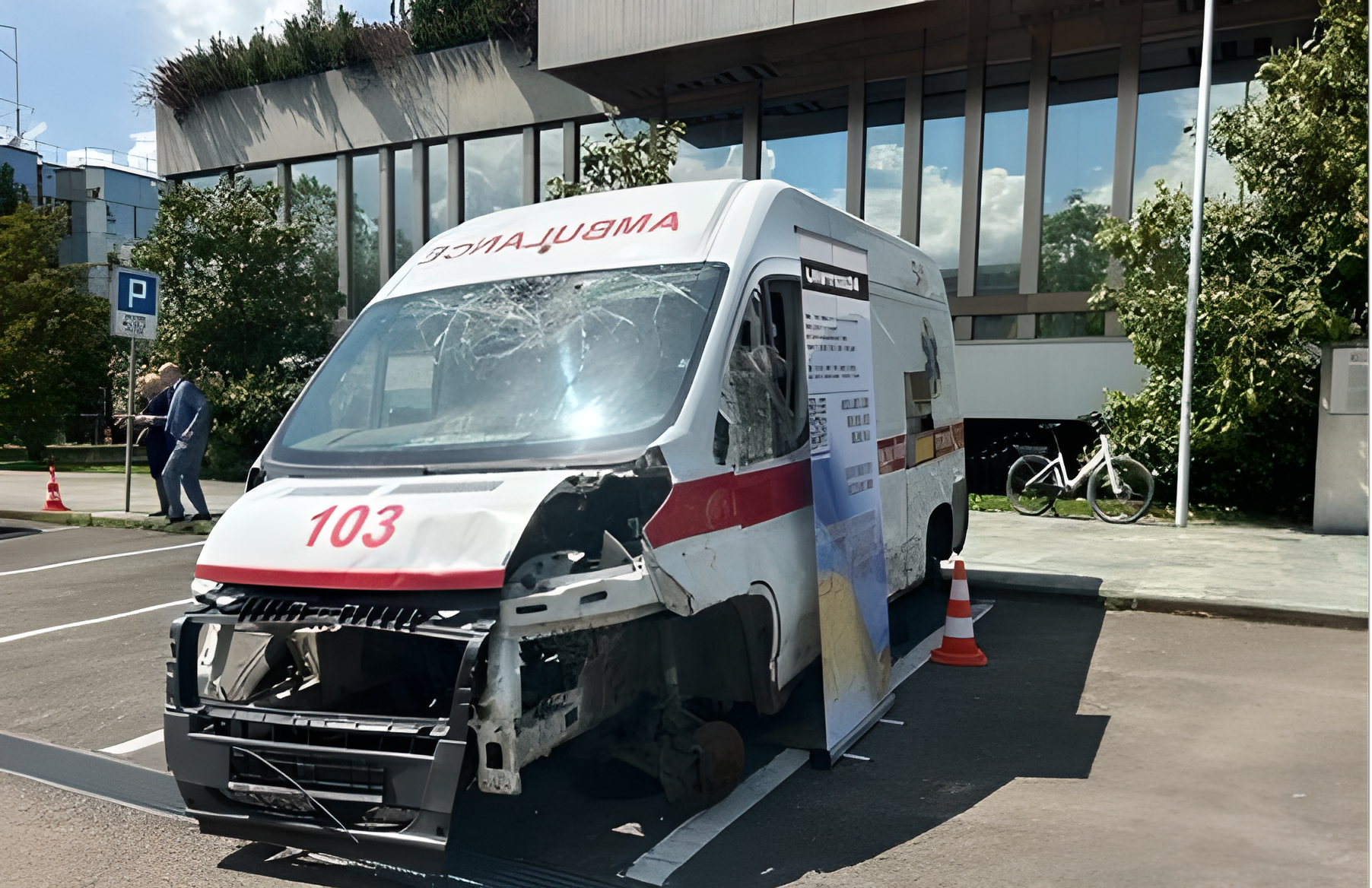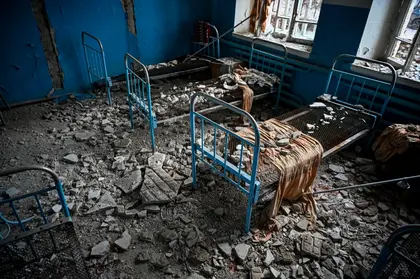Russian diplomats at the World Health Organization’s annual Assembly (WHA) yesterday circulated pamphlets accusing Ukraine of attacking its own hospitals and healthcare facilities.
The development was described as “theatre of the absurd” by the British representative to the highest international decision-making body for health matters, which has 194 members.
JOIN US ON TELEGRAM
Follow our coverage of the war on the @Kyivpost_official.
British ambassador Simon Manley said: “We are aware that... Russia has passed around pamphlets to our fellow delegates, which allege that Ukraine has been attacking its own health system. This is the theatre of the absurd.”
He further condemned “gratuitous disinformation propagated by the Russian state in an attempt to distract and confuse the World Health Assembly.”
Russia’s bizarre move came after Ukraine was joined by 43 allies in proposing a resolution condemning Russia’s “continued aggression against Ukraine, including attacks on health care facilities… and civilians and critical civilian infrastructure that have led to heavy casualties and hampered access to health care.”
The draft resolution further urges Russia to “immediately cease any attacks on hospitals and other health care facilities.”
On Wednesday, WHO member states voted overwhelmingly in favor of the resolution in a fresh show of support for Kyiv, by 80 votes to nine, with 52 abstentions.

NATO, Ukraine to Meet Tuesday Over Russian Missile Strike
Omitting any reference to its own role, Russia has proposed a counter-resolution “condemning attacks directed against civilians and health objects, including using civilians as live shields, indiscriminate shelling as well as placing military objects and equipment in densely populated areas and near civilian objects and using such objects for military purposes.”
The Russian counter-resolution, co-sponsored by Syria and supported by Belarus, North Korea and Nicaragua, also “calls on all parties concerned to refrain from the politicization of global health cooperation and to avoid confrontational rhetoric.”
France’s envoy Jerome Bonnafont said the Russian draft was a “new cynical attack against the truth.”
At least 8,500 civilians have been killed since Russia invaded Ukraine in February last year, and over 14,000 more have been injured, the UN Office of the High Commissioner for Human Rights said in its April status report.

More than 1,256 health facilities have been damaged and 177 more reduced to rubble, Ukraine told WHA delegates on Tuesday. The WHO has independently confirmed 974 attacks on medical facilities and the deaths of over 100 healthcare workers since the start of the war. WHO Europe Director Dr. Hans Kluge has called this “the largest attack on health care on European soil since World War II.”
One in five ambulances in Ukraine’s medical fleet has been damaged or destroyed, which the Ukrainian delegation highlighted via an exhibit at the WHA venue in Geneva, Switzerland.

Some commentators have, however, criticized the WHO for not doing enough to condemn Russian aggression during the 15 months of full-scale invasion. But the WHO’s position appears to be firming up as the war drags on.
Health Policy Watch reported that the use of the word “invasion” in a WHO status report on the organization’s emergency response in Ukraine caused clashes at this year’s Executive Board meeting, where Director-General Dr. Tedros Adhanom Ghebreyesus defended his choice in response to Russian allegations that the report had been politicized.
“I couldn’t find any other word that would represent it because it’s the truth,” Tedros said. “What could I say?”
Interventions in WHA plenary sessions calling out Russia’s role in the health crisis in Ukraine have so far been upheld by WHA President Dr. Christopher Fearne despite repeated Russian protests, Health Policy Watch further reported.
“We are not in New York, we are in the world health assembly,” the Russian delegation said in response to a statement by the United States that its invasion of Ukraine violated the charter of the United Nations. “We are ready to discuss the entire agenda, but not … any issues of aggression, or whatever these countries are saying.”
Fearne called the health crisis in Ukraine “clearly a health matter relevant to this Assembly.”
Ukraine has asked member states to vote down the Russian counter-resolution, which the head of its delegation, Health Minister Viktor Lyashko, said is based on a “distorted, alternative reality.”
“The Russian text is nothing short of a desperate attempt to put the aggressor on par with the victim and avoid responsibility for their attacks on the health care system in Ukraine,” Lyashko said.
“[Voting down the resolution] will send a clear signal that provoking a health emergency of outstanding proportions and destroying medical structures on a massive scale is not tolerated by this assembly,” he said.
US ambassador Sheba Crocker said that “the brutal attacks by Russia’s forces have displaced millions, destroyed critical health facilities, deprived millions of safe and access to essential health services and disrupted essential medical supply chains.”
“As Russia's brutality continues, the impact on global health deserves the highest level of attention,” she added.
An Estonian delegate went further and said that “Russia has no respect for human life” and called for the “suspension of the Russian Federation from the decision-making [of the WHO] until it has restored full respect to international law and human rights.”
The language of the Russian counter-resolution seems very similar to a report by Amnesty International published in August, which accused Ukrainian forces of repeatedly putting “civilians in harm’s way” by stationing soldiers nearby and staging military operations from populated areas. That report was roundly condemned and an unreleased internal review found it to have “significant shortcomings.”
You can also highlight the text and press Ctrl + Enter






